Support wanes for conscript system in Europe
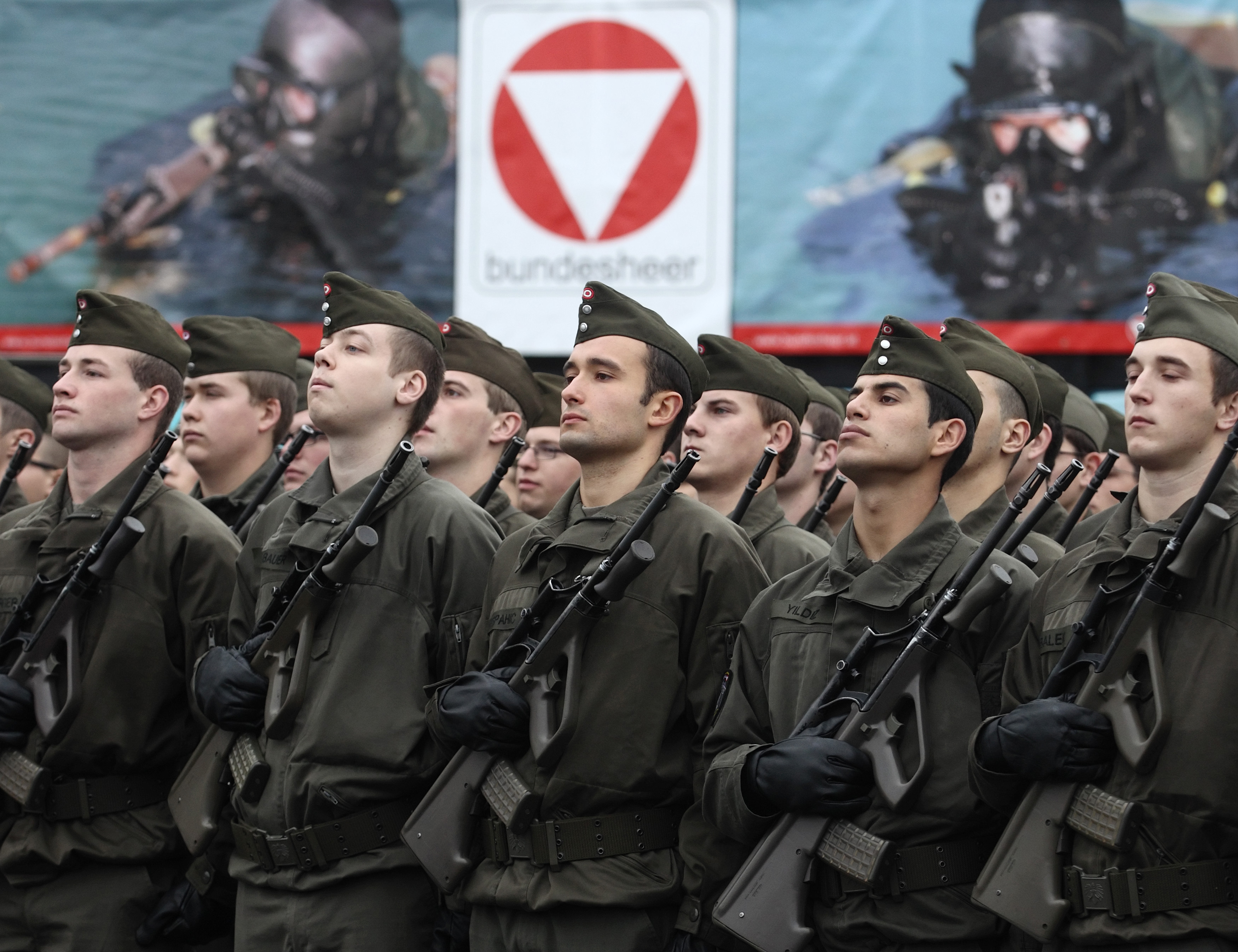
Austrians vote on army conscription this weekend, an issue on which voters in Switzerland might also be polled this year. In the post-Cold War era various European countries have grappled with the topic, each in their own way.
Seventeen countries in Europe have abolished or suspended conscription in the 21st century.
Only six European Union member states still maintain the principle of mandatory military service and nearly two-thirds of the total 43 states with armed forces have a professional army.
Just what has led to the gradual scrapping of conscription over the past two decades and is there a pattern?
“Each of these countries has had its own particular debate,” says Tibor Szvircsev Tresch, military sociologist at the Zurich-based Federal Institute of Technology.
Undoubtedly the end of the Cold War era had a profound impact on the role of armed forces as the West no longer faced the perceived threat by the Eastern bloc led by the former Soviet Union.
As a rule the primary task of many armies is no longer to defend national territory. Instead they have focused more on international missions – as part of the United Nations, members of the Nato alliance or the security structure of the EU – and on their subsidiary role in cases of disaster relief and for policing duties.
Added to that came a move towards shorter service periods for militia soldiers and an increasing number of male citizens who have opted out altogether, as Szvircsev Tresch points out.
Conscription is the compulsory enlistment of people in some sort of a national service.
Most often it is a military duty, but also covers alternative civilian service.
Opponents say conscription violates individual rights and the system is too costly.
The model for national conscription dates back to the French Revolution in the 1790s.
More than half of all European countries do not apply conscription, having abolished or suspended the system.
Switzerland is among the states which maintain conscription despite opposition by the political left.
Neighbours
France, Switzerland’s western neighbor, was one of the first countries in the 21st century to formally suspend conscription. Italy followed suit in 2005, while Germany waited until 2011 before it began to rely purely on professional troops.
Germany’s debate was marked by concerns about a possible shortage of personnel in the care sector as many men preferred the alternative civilian service – working in old people’s homes – to traditional army training. Meanwhile arguments for change were apparently lower costs and the increasingly unequal treatment of young citizens, as only about one in three Germans chose the military option.
Unlike Switzerland, all three countries are members of the Nato alliance and the EU.
Austria, bordering Switzerland in the east, could become the latest state to join the list of countries which have given up conscription.
According to observers, the debate in the run-up to the non-binding referendum on Sunday has been hijacked largely by party politics as Austria is holding parliamentary elections later this year.
However, neither its neutral status as an EU member country nor the costs appear to be a main factor with the ruling parties and the opposition trying to win support.
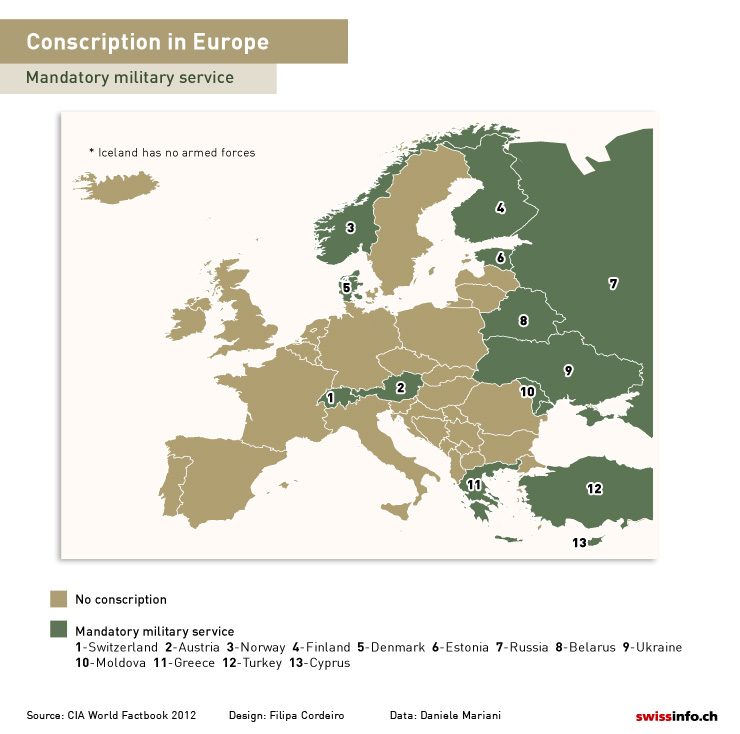
More
Mandatory military service in Europe
Neutrality, republican ideal
Another neutral state, Sweden gave up conscription in 2010. Its armed forces changed doctrine to focus on international tasks.
Neighbouring Finland, for its part, is among a handful of neutral European states – including Switzerland – which proudly uphold conscription and the traditional role of the armed forces, partly for historical reasons.
Ireland, another state with recognised neutral status, has never implemented the military draft. The issue caused a major political crisis with Britain during the First World War.
A more regular pattern can be found among states with systems based on republican values, including the Nordic countries as well as Germany, Austria and Switzerland, according to Szvircsev Tresch.
“These countries traditionally adhere to ideals of a state based on the public spirit.”
The rival model is rooted in a libertarian political philosophy which in essence makes individual liberty the main political value, putting it above the interests of the public.
Pacifists
In Switzerland a proposal by a pacifist group to end conscription is pending. Parliament began discussions on the Switzerland Without an Army initiative last December, to be continued in the Senate before cabinet sets a date for a nationwide ballot.
It will be the third time in less than 25 years that anti-conscription initiatives by the group have been put to voters.
In 1989 the group won a surprising 35.6 per cent in favour of what was a taboo-breaking proposal. Support for a similar plan – the scrapping of the forces and the creation of a voluntary peace corps – dropped to 21.9 per cent in a 2001 vote.
Last year the pacifist group, backed by centre-left parties, handed in the necessary signatures for their initiative aimed at scrapping conscription. It aims to set up an army of volunteers and to maintain a civilian service but on a voluntary basis.
However barring unforeseen events, supporters of the conscript system in Switzerland will continue to have the upper hand in the years to come.
Able-bodied male citizens are liable for military service at age 19. Military service for women is voluntary.
Men and women are discharged at 30 or when they complete military service. In some cases, different regulations apply for non-commissioned officers (NCOs), senior NCOs and officers.
An alternative service in Switzerland was only introduced in 1996 as a result of a constitutional amendment, following years of debate.
Switzerland’s armed forces active personnel: 154,373; reserve personnel: 31,767.
In 2012, 23,600 recruits were drafted for their initial training.
Presently 1,034 women are members of the armed forces.
About 2,650 members of the Swiss armed forces are career soldiers.
(Source: Swiss Armed Forces)

In compliance with the JTI standards
More: SWI swissinfo.ch certified by the Journalism Trust Initiative

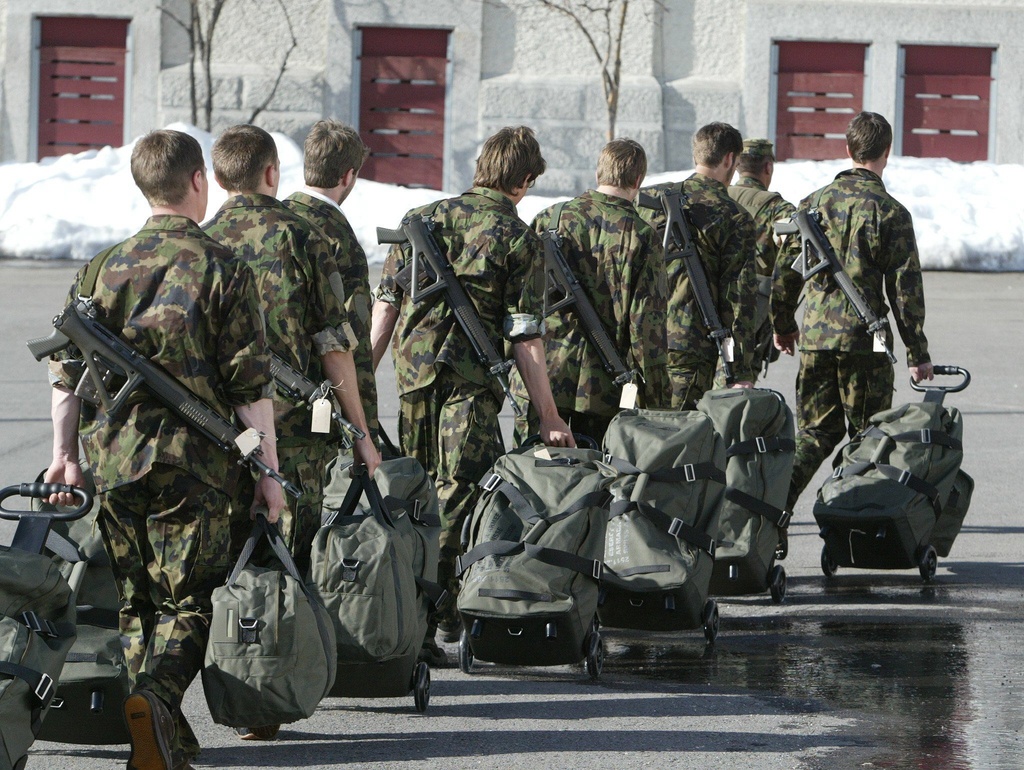
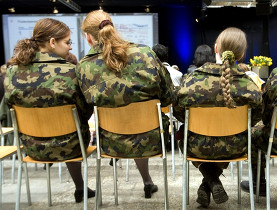
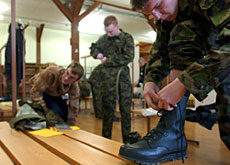
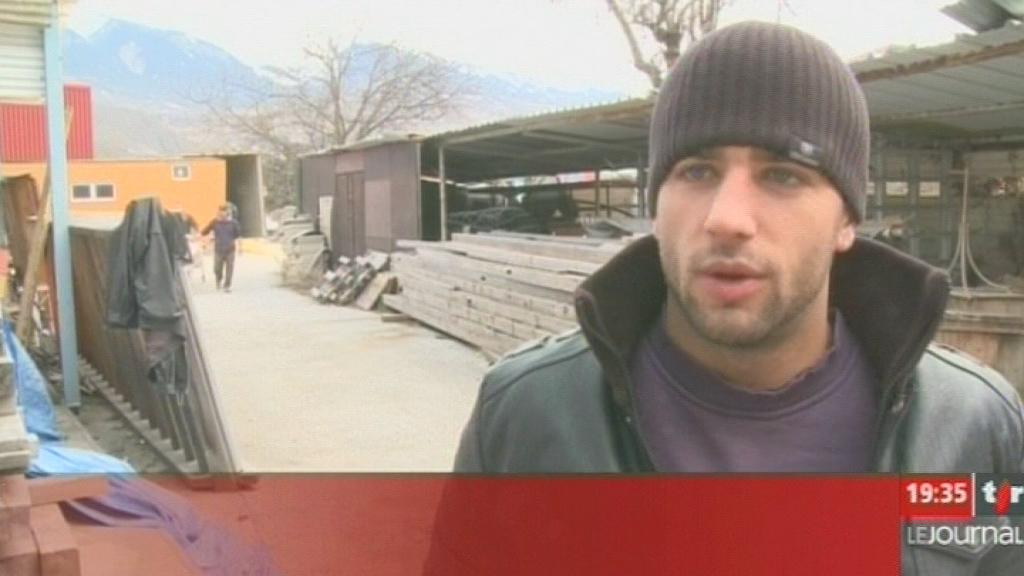
You can find an overview of ongoing debates with our journalists here. Please join us!
If you want to start a conversation about a topic raised in this article or want to report factual errors, email us at english@swissinfo.ch.